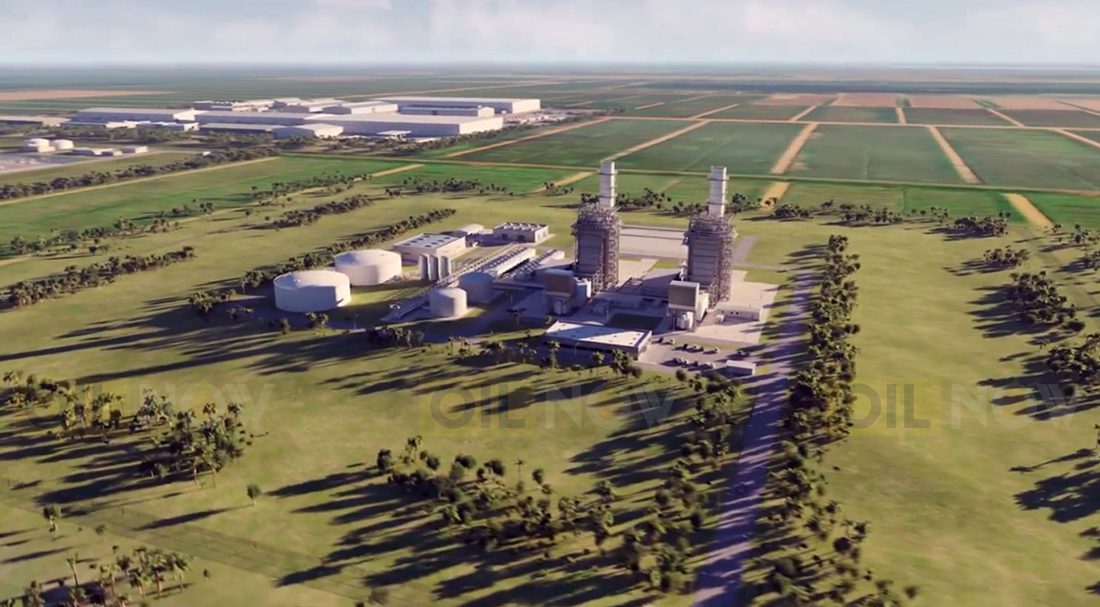Guyana’s Environmental Assessment Board (EAB) has upheld a decision by the Environmental Protection Agency (EPA) to not require a separate Environmental Impact Assessment (EIA) for Guyana’s upcoming 300 megawatts (MW) natural gas power plant. The power plant is expected to be constructed in an integrated facility with a natural gas liquids (NGL) plant for Guyana’s Gas-to-Energy project.
The EAB, vested with the power to set aside some decisions of the EPA, had been approached on the matter by environmental campaigners. The failed appeals would have held up the progression of the project.
During a May 18 press conference, Guyana Vice President Dr. Bharrat Jagdeo said he was pleased with the EAB’s decision, and that the timeline for the project has not been affected. The project is expected to be delivered by the end of 2024.
“There is no cause for shifting that timeline at this point in time,” Dr. Jagdeo said.
Laying of Guyana’s underwater gas pipeline to commence by June | OilNOW
To be clear, it is not that the environmental and social impact of the proposed power plant has not been studied. The EPA, in its decision not to require the assessment, said that the proposed location for the project falls within the area of influence/footprint of an EPA-approved ExxonMobil-led Gas to Energy Project (GtE) that was subjected to a comprehensive Environmental Impact Assessment (EIA), including a Cumulative Impact Assessment (CIA). As the project is a collaboration between ExxonMobil and the government, ExxonMobil’s application for environmental authorisation to lay a gas pipeline also included scope for a natural gas liquids (NGL) plant.
The campaigners that filed the appeal of the EPA’s decision said the CIA does not contain sufficient information to address the potential impacts of the power plant including measures to address explosions, leakages, impacts on water, air quality and greenhouse gases.
But the EAB in its May 10 decision said that it found there to be sufficient proposed mitigation measures for the expected environmental impacts included in the project summary and other supporting documentation submitted by the developer, ExxonMobil.
The Board also recommended that several actions be undertaken, including the compilation of a gas leak integrity management plan, an environmental and social management plan (ESMP), and other recommendations.
The EAB consists of three members: Guyana Energy Agency Head, Dr. Mahender Sharma who serves as the Chair; Permanent Secretary of the Ministry of Natural Resources, Joslyn McKenzie; and Chief Hydrometeorological Officer, Dr. Garvin Cummings.
Gas-to-Energy is a project that aims to put infrastructure in place so natural gas can be transported from the offshore Stabroek Block’s liza oilfield to an integrated gas processing facility at Wales, on the West Bank of Demerara.
A subsea pipeline will be installed on the seafloor to transport natural gas from the Liza field to an onshore pipeline at the West Coast of the Demerara river. The onshore pipeline will deliver the gas to the West Bank facility.
A natural gas liquids (NGL) processing plant will be built to treat the gas to remove NGLs for commercialisation, and a 300 megawatts (MW) power plant will use the dry gas to generate electricity for domestic use.
The primary aim of the project is to provide the fiscal space for the government to slash Guyana’s historically high electricity rates in half. The project, pegged at US$1.8 billion, is the largest in Guyana’s history.



